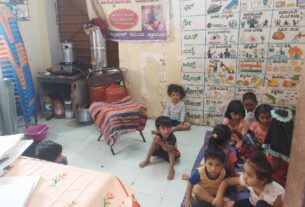The Artificial Intelligence (AI) network will help to predict the Cardiovascular Disease (CVD) to the patients of Apollo Hospital.
By Virendra Singh
Bengaluru, March 7, 2019
A programme was developed by one of the software companies that helps detect the risk of CVD and other cardiac-related problems. The AI network called API (Application Programme Interface) is the technology in which some of the key factors have been included. According to the National Health Survey conduct by the Union Health Ministry, the conclusion is that one in every eighth person is suffering from high blood pressure.
In API technology, there are some sets of measurements fixed, such as if the person is a smoker, the age, gender, whether it’s a diabetes patient, BMI (Body Mass Index), weight, obesity, and height. These measures are diagnosed on the basis of the rate of respiration, blood pressure, and hypertension. Patients having the risk of these diseases are diagnosed on these sets and the API calculates and concludes the possibility of cardiovascular disease and especially heart attack. All the Apollo Hospitals across the country are using this device to detect coronary artery disease (narrowing of the arteries), heart muscle disease (cardiomyopathy) are some CVDs.
Dr. Vinu S Gowda, Department Head of Cardiac Sciences Apollo says, ’’The aim of this initiative is to collect the data from across the city and conclude the percentage of people prone to CVD. These concluded data are sent to the CHC (community health center) and PHC (Primary health center) in villages. In rural areas, a cardiologist is very rare to find. A general physician can go through the measures set in API and after diagnosing the patient they can recommend for getting treatment in other cities.’’
On a daily basis, more than 100 patients were diagnosed when this technology came and we see a number of patients even now. CVD has become a common problem nowadays
Even people of Bangalore are getting a benefit as after a check-up they can know if they are prone to heart attack and cardiovascular disease. It is the first step for a cardiologist as well to get into the possibility of a disease-prone patient. The overall idea of this initiative is to help the rural area people so that they can get help in early diagnosis.
A patient from Bangalore said, ‘’it has become a bit transparent for us as well because we can know the possibility of getting into risk of heart disease early. Changing in lifestyle and preventive measures reduce the risk of actually getting into prey of these diseases.”




